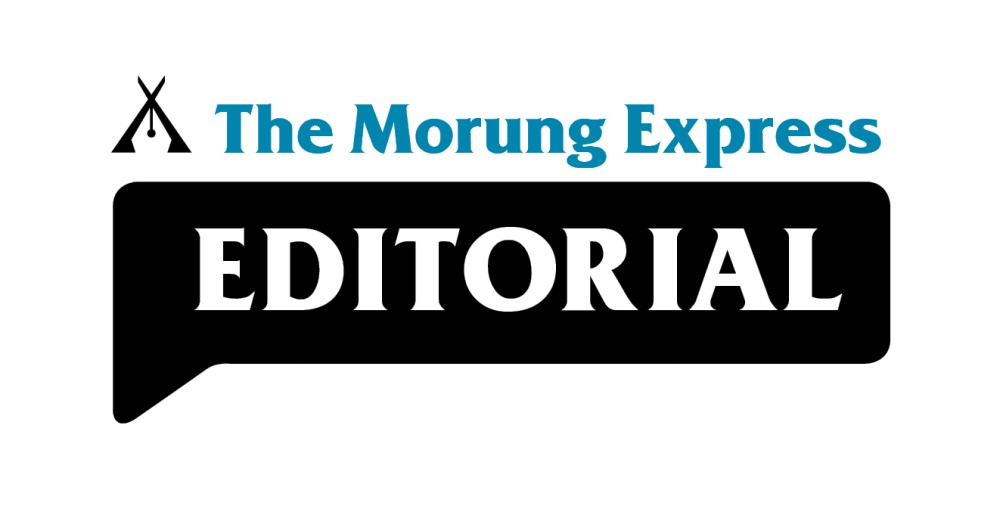
By - Dr. Asangba Tzudir
Considering the year that is drawing to a close, the topic of this editorial piece may seem quite unusual, yet, this column has been highlighting about the FYUGP (Four Year Under Graduate Programme) for some time now and which calls for further attention with new developments taking place in the FYUGP as it took off with various forms of issues and challenges besides the associated uncertainties and lack of clarity. Besides students and teachers in colleges, the parents and guardians forms an integral part of the stakeholder support and this call for understanding the new system under FYUGP of the New Education Policy 2020.
Two major developments have taken place under the FYUGP. Earlier, there was uncertainty over the 4th Year of the FYUGP. A Notification from the affiliated Nagaland University No. NU/ACAD-236/2021-1931 Dt: 16.7.2024, pertaining to the 4th year program of the FYUGP stated thus: “For starting the fourth year course in colleges under ongoing Four Year Undergraduate Program will be allowed to the colleges who are offering PG Courses.” This very notification was interpreted or translated as one that contradicts the very purpose and objective of FYUGP where the 4th year of the FYUGP cannot be taken up by those colleges that do not have master program.
However, Nagaland University notification No. NU/EXAMS/UGC/1-13/2017, dated Lumami, the 12th December 2024, paved the way for introduction of the 4th year programme in colleges, which reads, “the University agreed in principle to allow all affiliated colleges to offer UG Honors Degree Programme i.e. 4th Year of FYUGP. However, colleges shall be considered for permission on the basis of availability of infrastructure and adequate teaching strength.” While the agreement is in principle, it has also directed all the Board of Studies to start preparing the syllabus/course of the 4th Year for all the subjects.
Now the very name of the system being Four Year Under Graduate Programme, for any college not to be allowed to take up the 4th year on grounds of lack of infrastructure and adequate teaching strength will be at a disadvantage while also defeating the very system. As such, both the private colleges and especially the government colleges need to prepare in order to fulfill this requirement since the 4th year is going to start from the odd semester of 2025.
Now, for the other major change, delving into the structure of the FYUGP, the Curriculum and Credit Framework which was approved by the 36th Academic Council on 17th May 2023, had the following components – Discipline Specific Core Paper (DSC); Minor Paper (Min) which is a Core paper from another department/subject; Interdisciplinary Course (IDC); Ability Enhancement Course; Skill Enhancement Course (SEC)/Internship/Dissertation; and Common Value Added Courses (VAC). Under the IDC, different IDC papers are offered by various departments under a common pool papers from which students can choose one of the given choice papers. The other choice component under IDC was SWAYAM (Study Webs of Active Learning for Young Aspiring Minds). However, through the same notification, the Nagaland University has now made SWAYAM mandatory which was initially an option but not mandatory (Ref. No: No. NU/SWAYAM-2024/SAC-01, dated, the 10th September 2014). This notification has made SWAYAM Courses mandatory for all UG/PG courses under the Nagaland University and minimum of one paper has to be taken by the student.
Having made SWAYAM mandatory, it has laid the following points: (1) All colleges shall encourage students to take up SWAYAM course as per the NU FYUGP Guidelines. (2). The University Nodal Officer, SWAYAM, shall prepare and circulate the FAQ’s (Frequently Asked Questions). (3). The University shall organize a SWAYAM workshop at Kohima Campus during the month of February 2025. (4). In addition to MDC/IDC, Colleges may take up Value added Course under SWAYAM.
Now, what is not clear is whether that minimum one SWAYAM paper is to be taken every semester or in the course of the three or four years. However, the larger concern is how the students will cope with the SWAYAM course which is an online learning platform. The challenge for students is to adapt to the online learning even as they continue to struggle in the physical classroom learning. Then, the weekly online assignments will be another test under SWAYAM since it comes with a dateline for submission. Under the present FYUGP, students can no longer afford to procrastinate but be willing learners within the various challenges and the uncertainties ahead.
(Dr. Asangba Tzudir writes guest editorial for the Morung Express. Comments can be mailed to asangtz@gmail.com)






